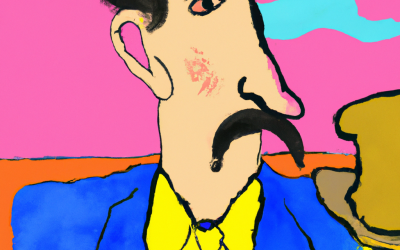Music has been an integral part of human civilization for centuries. It has the power to evoke emotions and transform moods. While we all have different music preferences, research has shown that making music can have a positive impact on our mental, physical, and psychological health. In this article, we will explore how making music can melt away anxiety and depression.
What is Anxiety and Depression, Exactly?
Anxiety and depression are the most common mental health disorders globally, affecting millions of people each year. Anxiety is characterized by excessive worrying, fear, and nervousness, while depression is characterized by feelings of sadness, hopelessness, and a loss of interest in activities that were once enjoyed. Both disorders can severely impact a person’s quality of life and make it difficult for them to perform daily activities.
How Making Music Can Help with Anxiety and Depression
Research has shown that making music can have significant benefits in reducing symptoms of anxiety and depression. Here’s how:
1. Music Helps to Regulate Emotions
Music has the power to regulate emotions by stimulating the release of dopamine, a neurotransmitter that is associated with pleasure and reward. When we make music, we experience a sense of accomplishment and satisfaction, which can help to regulate our emotions and reduce feelings of anxiety and depression.
2. Music Encourages Mindfulness
Making music requires concentration and focus, which can promote mindfulness. Mindfulness is a state of awareness that helps us to stay in the present moment and be more accepting of our thoughts and feelings. Practicing mindfulness has been shown to reduce symptoms of anxiety and depression.
3. Music Promotes Social Connection
Making music can be a social activity, which can promote social connection and reduce feelings of loneliness and isolation. Playing music with others can help us to feel a sense of belonging and community, which can have a positive impact on our mental health.
4. Music Provides a Creative Outlet
Making music provides a creative outlet for self-expression, which can help to reduce stress and anxiety. When we create music, we are engaging in a form of self-care that allows us to express our emotions and feelings in a safe and constructive way.
5. Music Improves Cognitive Function
Making music requires the use of multiple cognitive functions, including memory, attention, and motor skills. Regularly engaging in musical activities has been shown to improve cognitive function, which can have a positive impact on our mental health.
6. Music Promotes Physical Relaxation
Playing music can promote physical relaxation by reducing muscle tension and lowering heart rate and blood pressure. When we play music, we enter into a state of relaxation, which can help to reduce symptoms of anxiety and depression.

The Science Behind How Music Can Help with Anxiety and Depression
Research has shown that making music can have a significant impact on our mental health. Here’s what the science says:
1. Music Stimulates the Release of Dopamine
Studies have shown that listening to music can stimulate the release of dopamine, a neurotransmitter that is associated with pleasure and reward. When we make music, we experience a sense of accomplishment and satisfaction, which can stimulate the release of dopamine and help to reduce symptoms of anxiety and depression.
2. Music Improves Brain Function
Research has shown that making music can improve brain function by increasing connectivity between different areas of the brain. This increased connectivity can help to improve cognitive function, which can have a positive impact on our mental health.
3. Music Reduces Cortisol Levels
Cortisol is a hormone that is released in response to stress. High levels of cortisol can contribute to symptoms of anxiety and depression. Studies have shown that making music can reduce cortisol levels, which can help to reduce symptoms of anxiety and depression.
4. Music Improves Sleep Quality
Sleep is essential for good mental health. Studies have shown that making music can improve sleep quality by promoting relaxation and reducing stress levels. A good night’s sleep can help to reduce symptoms of anxiety and depression, making music a valuable tool for improving mental health.
5. Music Helps to Manage Pain
Chronic pain is a common symptom of anxiety and depression. Research has shown that making music can help to manage pain by reducing the perception of pain and promoting relaxation. Playing music can distract the mind from the pain and provide a sense of comfort, which can help to reduce anxiety and depression.
6. Music Enhances Mood
Music has the power to enhance mood by stimulating the release of neurotransmitters such as dopamine and serotonin. These neurotransmitters are associated with feelings of pleasure and happiness, which can help to reduce symptoms of anxiety and depression.
Music is a Valuable Tool
Anxiety and depression can be debilitating mental health disorders that impact millions of people worldwide. While there are many treatment options available, making music is a valuable tool that can help to reduce symptoms and improve mental health. Making music can regulate emotions, encourage mindfulness, promote social connection, provide a creative outlet, improve cognitive function, promote physical relaxation, and enhance mood.
The science behind music’s impact on mental health is clear. Making music can stimulate the release of dopamine, improve brain function, reduce cortisol levels, improve sleep quality, manage pain, and enhance mood. These benefits make music a powerful tool for those looking to manage symptoms of anxiety and depression.
If you’re struggling with anxiety or depression, consider incorporating music into your self-care routine. Whether it’s playing an instrument, singing, or listening to your favorite songs, making music can help to melt away anxiety and depression and improve your overall mental health.
Remember, seeking professional help from a therapist or mental health provider is an option for those struggling with anxiety and depression. However, incorporating music into your treatment plan – as well as finding other wholistic ways of healing from anxiety and depression – can provide a valuable complement to traditional therapies and help you on your journey to improved mental health.





















